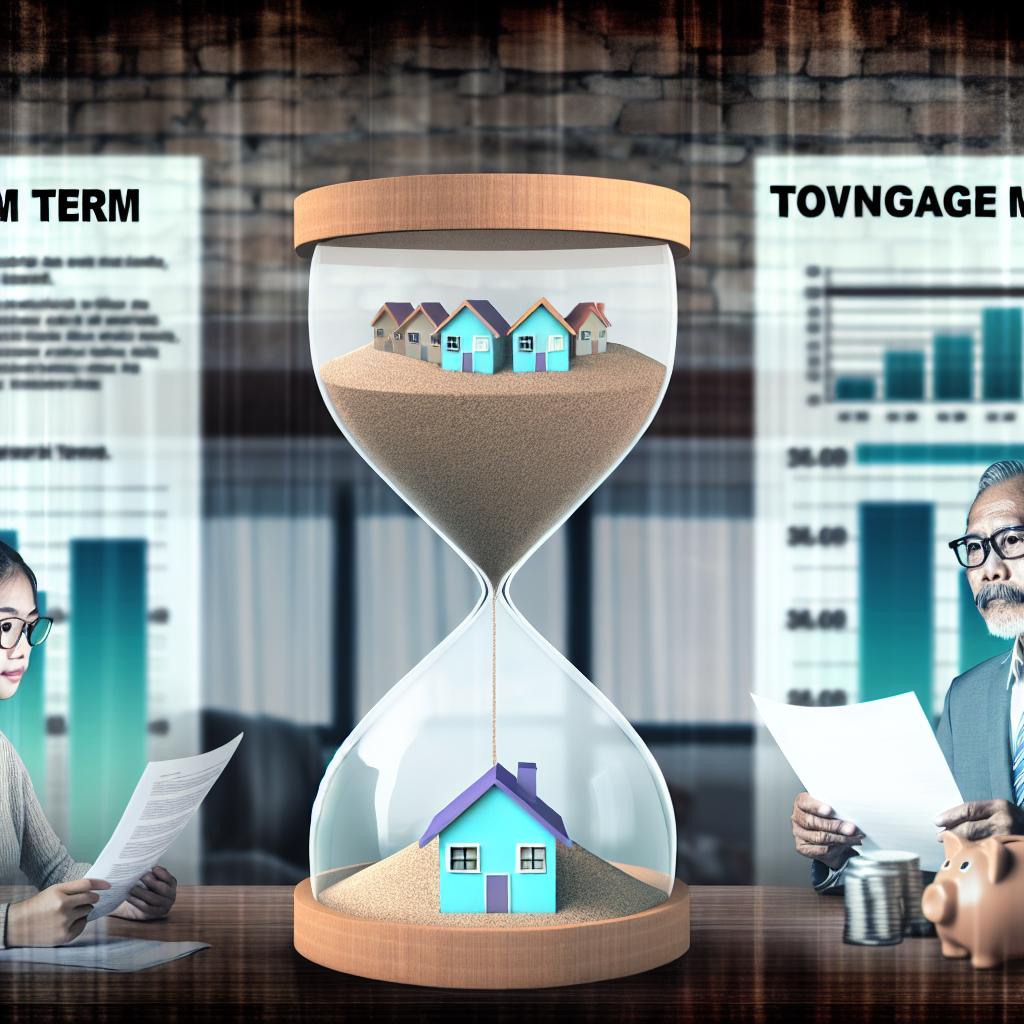
When deciding how long your mortgage term should be, it’s essential to consider several factors. The mortgage term length will impact your monthly payments, the total cost of the loan, and how quickly you build equity in your home. Common mortgage terms range from 10 to 30 years, with the 30-year fixed-rate mortgage being the most popular option in many countries.
Opting for a shorter mortgage term, such as 10, 15, or 20 years, generally results in higher monthly payments. However, there are significant advantages to these shorter terms that are worth exploring further.
Reduced Interest Costs: A shorter term means you will pay significantly less interest over the life of the loan. By opting for a shorter duration, you minimize the time that interest has to accrue, which translates into substantial savings. For instance, let’s consider a hypothetical scenario where you have a 15-year mortgage versus a 30-year mortgage on the same loan amount with the same interest rate. Over the course of these loans, the difference in interest payments can be staggering, sometimes saving you tens of thousands of dollars.
Faster Equity Build-Up: With larger monthly payments, you will pay down the principal more quickly. This means that a greater portion of your payment goes toward reducing the loan balance rather than servicing the interest. As a result, you build equity in your home at a faster rate. Equity can be a valuable asset as it not only increases your stake in the property but also potentially provides opportunities for borrowing against the value of your home should the need arise.
Quicker Debt Repayment: Shorter terms allow you to be mortgage-free sooner, potentially freeing up funds for other financial goals. This liberation from debt can open up new horizons for homeowners, whether it be reinvesting the money saved into other assets or using the freed-up funds to enjoy a different lifestyle. For those looking towards retirement, being debt-free sooner can significantly alleviate financial pressures.
Choosing a longer-term mortgage, such as 25 or 30 years, has its benefits and drawbacks. A deeper understanding of these aspects can assist in making informed decisions about the best course of action.
Lower Monthly Payments: The primary advantage is undoubtedly the lower monthly payments. For many individuals and families, this feature makes homeownership more affordable. By spreading the cost over a more extended period, monthly outlay is reduced, leaving more disposable income available for other day-to-day expenses.
Higher Total Interest Costs: While the lower monthly payments are convenient, they come at the cost of higher total interest paid over the life of the loan. The lengthier the term, the more interest payments build up over time, which can lead to paying double or more of the loan’s principal in interest.
Slower Equity Build-Up: It will take longer to build equity in your home, which may impact your ability to refinance or sell if home values decline. This slow accumulation of equity could influence long-term financial strategies, such as using the home’s value as collateral for additional loans.
Flexibility in Financial Planning: Lower payments offer flexibility in budgeting, allowing you to allocate funds to other needs, such as emergency savings or retirement contributions. This can be particularly advantageous for individuals with variable income or those who anticipate large expenses in the future.
When determining the right mortgage term, it’s important to evaluate your financial situation and long-term goals. Here’s what to consider:
Income Stability: Analyzing your income stability is crucial, as a stable income may allow you to afford higher monthly payments that come with shorter-term loans. Conversely, if your income is irregular, it might be safer to opt for a longer term to ensure payments remain manageable irrespective of financial fluctuations.
Long-Term Financial Goals: Assess whether you prefer to pay off your mortgage sooner or maintain cash flow for other investments or goals. The decision may vary depending on whether your focus is on rapid property equity accumulation or on maximizing investment in other areas with anticipated higher returns.
Risk Tolerance: Consider your comfort level with potential changes in interest rates, especially if you are considering adjustable-rate mortgages. For those favoring stability, a fixed-rate might be preferable, but for others looking to minimize initial payments, an adjustable-rate mortgage could work if market conditions are favorable.
Consulting with a mortgage advisor or financial planner can provide personalized insights into the best mortgage term for your situation. They can help you assess your financial health, evaluate available loan products, and determine the optimal strategy for your home financing. A professional will have insight into the current market conditions, can offer nuanced advice on the trade-offs between different mortgage terms, and can model scenarios to aid your decision-making process.
Ultimately, the decision on mortgage term length should be based on your individual financial circumstances and goals, balancing the need for manageable payments with the desire to reduce long-term interest costs. Just as importantly, a thorough understanding of both shorter and longer terms will help prepare you for any unexpected financial challenges or opportunities that might come your way. For further insights into mortgage terms and options, you can consult reputable consumer finance websites, which provide comprehensive resources on the subject.
By carefully considering these elements, you will be better equipped to choose a mortgage term that aligns with your financial goals, both immediate and in the long term.
This article was last updated on: August 11, 2025